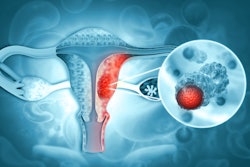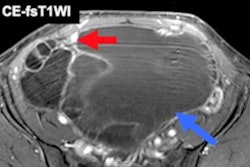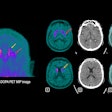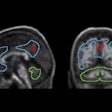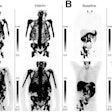Aggressive endometrial cancer may be associated with high metabolic activity of visceral fat, according to Norwegian research to be presented on 5 October at the 38th Annual Congress of the European Association of Nuclear Medicine (EANM '25) in Barcelona.
The finding is from a PET/CT imaging analysis of 274 women with endometrial cancer that measured glucose uptake in visceral fat tissue. Visceral fat (the fat that surrounds internal organs) is known to influence metabolism and inflammation.
Women with higher metabolic activity (glucose uptake) were more likely to present with advanced-stage disease and lymph node metastases, according to Jostein Sæterstøl, a doctoral candidate in the department of radiology at Haukeland University Hospital's Mohn Medical Imaging and Visualization Center and the University of Bergen.
“Chronic inflammation in visceral fat can release cytokines and fatty acids that promote tumour growth and immune evasion," Sæterstøl explained ahead of EANM '25, which runs from 4 to 8 October. "Inflammation is also known to induce insulin resistance, which is another risk factor for cancer progression."
In addition, signaling molecules known as adipokines and crosstalk between fat tissue and tumor cells may further support cancer spread, particularly to lymph nodes, Sæterstøl said.
Endometrial cancer is the most common gynecological cancer in Europe, with increasing frequency due to the growing incidence of obesity.
Technical challenges and variability limit routine clinical use of measuring visceral fat metabolism with PET/CT, especially given the low uptake signal in fat tissue, according to the researchers. However, they said that including standardized imaging analyses, advanced quantitative PET techniques, and AI may help identify high-risk patients, guide treatment decisions, and monitor disease progression.
The group plans to focus on refining measurement methods, improving accuracy through AI-based segmentation, and exploring links between visceral fat metabolism and circulating biomarkers such as cytokines and hormones. They also intend to explore associations with tumor genomic profiles.






